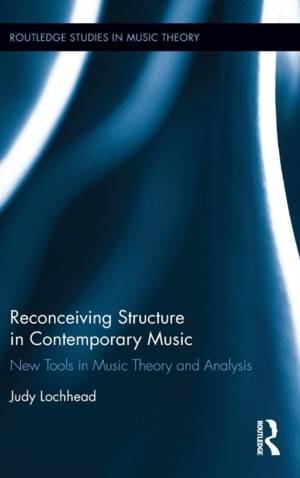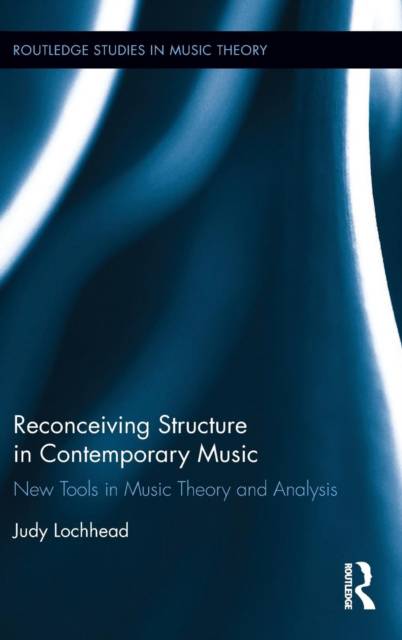
- Afhalen na 1 uur in een winkel met voorraad
- Gratis thuislevering in België vanaf € 30
- Ruim aanbod met 7 miljoen producten
- Afhalen na 1 uur in een winkel met voorraad
- Gratis thuislevering in België vanaf € 30
- Ruim aanbod met 7 miljoen producten
Omschrijving
This book studies recent music in the western classical tradition, offering a critique of current analytical/theoretical approaches and proposing alternatives. The critique addresses the present fringe status of recent music sometimes described as crossover, postmodern, post-classical, post-minimalist, etc. and demonstrates that existing descriptive languages and analytical approaches do not provide adequate tools to address this music in positive and productive terms. Existing tools and concepts were developed primarily in the mid-20th century in tandem with the high modernist compositional aesthetic, and they have changed little since then. The aesthetics of music composition, on the other hand, have been in constant transformation. Lochhead proposes new ways to conceive musical works, their structurings of musical experience and time, and the procedures and goals of analytic close reading. These tools define investigative procedures that engage the multiple perspectives of composers, performers, and listeners, and that generate conceptual modes unique to each work. In action, they rebuild a conceptual, methodological, and experiential place for recent music. These new approaches are demonstrated in analyses of four pieces: Kaija Saariaho's Lonh (1996), Sofia Gubaidulina's Second String Quartet (1987), Stacy Garrop's String Quartet no.2, Demons and Angels (2004-05), and Anna Clyne's "Choke" (2004). This book defies the prediction of classical music's death, and will be of interest to scholars and musicians of classical music, and those interested in music theory, musicology, and aural culture.
Specificaties
Betrokkenen
- Auteur(s):
- Uitgeverij:
Inhoud
- Aantal bladzijden:
- 180
- Taal:
- Engels
- Reeks:
Eigenschappen
- Productcode (EAN):
- 9781138824331
- Verschijningsdatum:
- 7/07/2015
- Uitvoering:
- Hardcover
- Formaat:
- Genaaid
- Afmetingen:
- 155 mm x 231 mm
- Gewicht:
- 408 g

Alleen bij Standaard Boekhandel
Beoordelingen
We publiceren alleen reviews die voldoen aan de voorwaarden voor reviews. Bekijk onze voorwaarden voor reviews.











